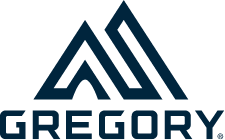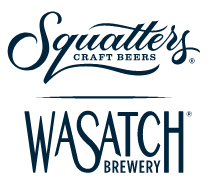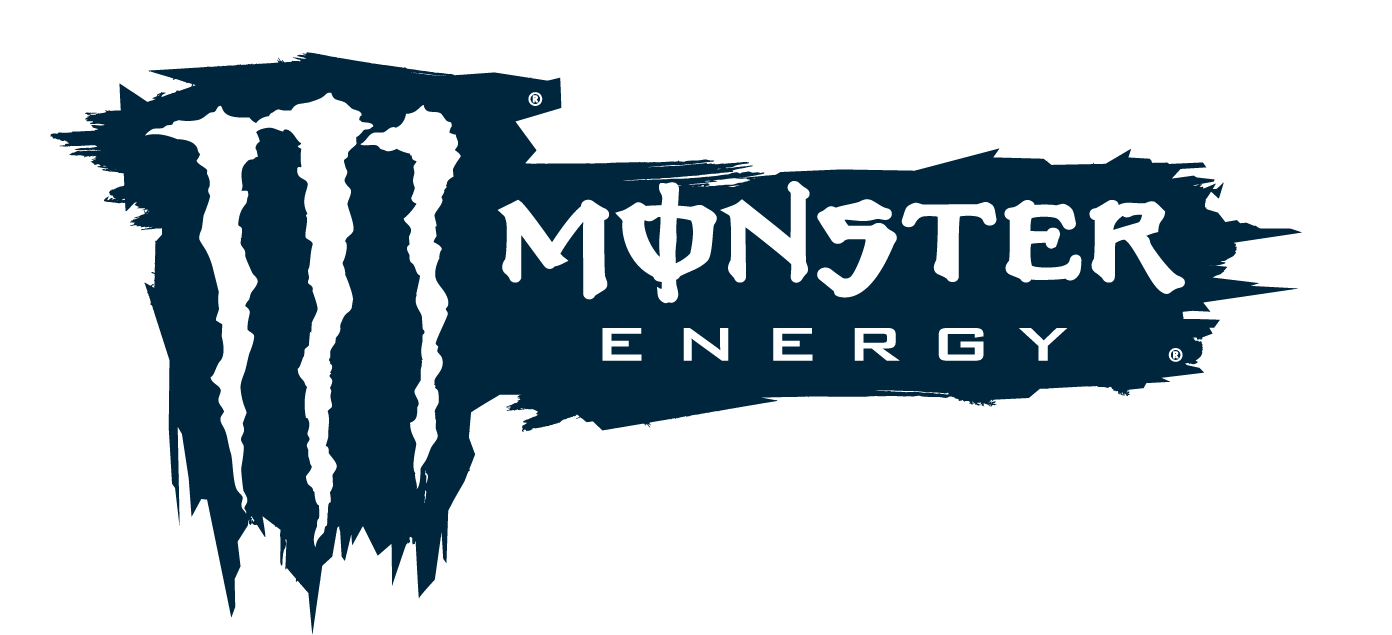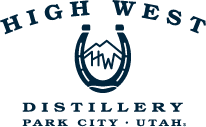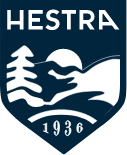Episode 2 - Dec. 9, 2019
Dave Richards is a part of the culture and fabric of Alta, one of Utah’s most beloved ski areas. As snow safety director, he’s your most important friend on the mountain - helping to keep you safe. December is that time of year when everyone’s asking, ‘why can’t I ski there?’ Getting a bit alpine mountain ready for the ski season is a challenge, with everyone itching to get back to their favorite line. Richards, affectionately known as Grom, is at the forefront of seasonal preparation as a team of professionals prepares lifts, snowmaking and other infrastructure for the season. Most importantly, as the snowfall comes his team of patrollers work night and day to ensure the safety of guests.
Richards literally grew up on the mountain at Alta with his father a patrol leader. The Wasatch backcountry was his home and remains deep in his heart. Last Chair will explore Alta through the eyes of the ultimate Alta local - the values he holds and the importance of keeping skiers safe. Grom will be ever philosophical as he tells us about his favorite mountain stash and how you can find your own!
Listen in this week on Last Chair for a locals tour of Alta, one of America’s most magical mountains.
Episode 2 - Transcript
00:00:09- Hello, Utah skiers and Rodders. There's snow in the mountains and another great season is upon us across the entire state of Utah.
00:00:17- What an amazing early season it has been with a wonderful blanket of Thanksgiving snow leading into December.
00:00:23- Hi, I'm Tom Kelly. You're host for last chair from Ski, Utah, telling the story of the greatest snow on earth. Last year, we'll take you inside Utah's majestic mountains, putting a face on the resorts where we all love to ski and ride. It's about that mountain life experience, blending those majestic views from the peaks with the exhilaration of pushing our boards down into the fall line through that wonderful Utah powder. Today, we've headed back up a little Cottonwood Canyon Alto's just a tiny village that was a boomtown at its inception in 1871 as the entire Wasatch Range became dotted with mining claims. Today, the mines are closed, but the chairlifts, with skiers high up to the flanks, amount Baldie and Sugarloaf carving big turns through the powder down Balram or Devil's Castle. As you look up into the mountain, you can almost imagine the scene as Altus favorite son Alpha engine drops down high rustler at the end of the day. It's an amazing mountain. It's also the time of year when skiers are really itching to get into new terrain. But it takes time to get a resort up to full operation and make it both enjoyable and safe for skiers. Today, we're joined by one of the key leaders behind the scenes here at Alta. Dave Richard, also known as Garam, is a 19 year veteran at Alta. More importantly, he was born and raised right here in Utah and learned his way around the Wasatch Mountains as a child. He's worked as heli guide for Wasatch Poterba Guides, avalanche rescue dog handler, a competitive free skier member, the Wasatch Backcountry Rescue Team and a longtime patroller here at Alta. He now heads up snow safety. While he may be someone behind the scenes as an owl to skier, you should consider him your best friend as he helps to keep you safe. And Graham, welcome to last Cheiron. Great to have you join us today.
00:02:11- Thanks a lot.
00:02:12- Thanks for having me. You know, it's been an amazing season so far and I know that Thanksgiving hit you pretty hard. And we're going to get into a little bit more detail on that. But just in a nutshell, how was that Thanksgiving opening weekend?
00:02:24- Well, it's wonderful. It's wonderful to be open again and, you know, have people back and we're skiing again, which is fantastic. But it would it's a lot of work, especially this year. It's been tough, a lot of snow all at once. We went from having nothing to set the mountain up to, you know, fifty eight inch, 60 inch base in three days flat. And that made for some long days for you all to ski patrol, scurrying around and doing avalanche work and setting up this hill so that we could all go powder scan.
00:02:57- Well, we're going to talk a little bit more in detail about it, but let's learn a little bit about you, your background. I know that you grew up here in Utah on the Wasatch Mountains, where your home is a child. Tell us a little bit about how you grew up in the mountains and what they mean to you.
00:03:09- Well, this is it is my home. It's where I was raised. And my father was an altar ski patroller in the early 70s. And in 1972, he was assistant director of the Alta Ski Patrol. And he met my mother, who was up here taking a year off from college and working at the Rustler Lodge. And they made their life here in the Wasatch Mountains, climbing and skiing and as a huge part of Alta. All said and done a ski patrol for all to for 33 years. And when he left, I jumped on board.
00:03:46- So do you remember that first time that you went up on the mountain with him?
00:03:50- I don't remember the first time at all. I have a lot of memories of my childhood in Alta. It was a wonderful childhood being raised in these mountains. We were babysat by the employees of Alta Ski Area. You know, at the age of seven years old, we were cut loose, untethered and untouched for, you know, hours a day to go out and just ski powder and get hurt and get lost.
00:04:19- Have a wonderful time. And the best way to learn is the best way to learn.
00:04:23- And, you know, this mountain community looked out for us. And if one of the kids was lost or hurt, you know, and dad heard about it pretty quick and we got it figured out. And it's great.
00:04:33- Did you ever did you get to know Al Franken at all? Is it. As a young guy, I knew Elf. Not well.
00:04:41- You know.
00:04:43- I was more in the locker room of the ski patrol than that of the ski school. But yeah, I knew Alf and I have memories of of ALF and and also of Alan, you know, skiing us around.
00:04:54- And our kids the the kids program here at Altea called the what was initially the Alta Youth Club, I think was actually created to babysit the ski patrollers and ski schooler's kids because we were getting in so much trouble. And now it's this huge booming thing with freeride teams and race teams and all this other stuff. But that was really are are in with the ski school at that point was was when they created this program to more than anything, look after the kids. And we didn't really do a lot of ski instruction so much as with ski power, everything.
00:05:31- There's nothing wrong with that.
00:05:33- You know, I think one of the things that that I love so much about being here in the Wasatch is that mountain life, that characteristic of living your life in the mountains and being able to get up there on skis or in hiking boots or whatever it might be. It's really quite an amazing thing, the mountain life.
00:05:51- It is. I mean, I would never trade growing up in these mountains. And there's been a lot of change and there's many, many, many more people. But the rocks are still the same and the trees are just a little bit bigger and you know, the mountain itself hasn't changed that. The geography is the same and that's it. That's the place I fell in love with as a kid.
00:06:14- So, Graham, I was reading this story that Kristen Almer wrote. I don't know if you remember it all, but it was from, I think, 2001. I think it was in Powder magazine where she wrote about you and I think Dave HMIC Rentals and called you guys the new generation of LTA. But that was like 20 years ago, you know, a little look back on that. And how is it evolved since then?
00:06:36- Well, that's incredibly flattering.
00:06:39- I don't remember it. That's pretty flattering to be a definition or a defining member of a generation, I suppose. But a.
00:06:53- Wow. I think that's what we were just talking about with what diesel to bring in the future and the changes to people right now, I'm the old generation of Alt-A in the eyes of the young skiers here and on the funny, funny old guy, that's the grumpy snow safety director, you know, and and they're the they're the new generation. So I look at the Pollard kids that are skiing up here now. Sam Cohen, who is the son of the famous keif Tague for Lee Cohen. And they're the new generation and they're those kids that are skiing faster and doing things that I never even thought possible.
00:07:30- So I think you've done your generation well.
00:07:34- Thanks. We'll find out in the end, I suppose. No, thank you.
00:07:39- What are the things that you like to do outside of being on the mountain here?
00:07:43- You know, it sounds silly, but romantic walks on the beach every house, every spring.
00:07:50- I leave here and I go somewhere hot and sunny and I get out of here. And that's really nice because when I come home to these hills, I I rediscover it in some ways. And then I spend a lot of time in the summer running rivers and kayaking, things like that.
00:08:07- But this is always home. And, you know, is there anything I'd really rather do than this? No. So, you know, I'd rather be here, frankly.
00:08:18- Let's talk a little bit about Alta. It is a great culture, an amazing history that dates back all well over a century to the mining area and then back to the 30s for the ski area. Talk a little bit about the history, this place and what has made it so special.
00:08:33- Well, you know, the history.
00:08:36- Behind Delta is one of. Exploration. And rugged individualism. And that lasts till today. The miners. They had a tough go of it up here and their entire village was wiped out by avalanches on numerous occasions and multiple people were killed in those events. And they said, well, we like it there and there's money to be made there. So we're sticking around. And then in the, you know, early nineteen hundreds, Alf started skiing over the ridge from Brighton and saying we should build a ski resort there. And that ski resort. Continues to exist is, as you said, a very small community made up of very unique individuals and a mentality of. That exploration thrives to this day where, you know, people ask me on the lift.
00:09:39- Hey, what's the best run at Alta? And I say, oh, go find out. Go, go explore. Go have fun. You know, wander around, get lost, and I bet you find something you like a lot.
00:09:51- You know, I love your comment about the rugged individualism. I think that really says what Elton's about. It's a rugged area. And as you said, go find your favorite run.
00:09:59- Right. Right. You know, we're not we don't. We let skiers be skiers and. Part of that to us is adventure skiing, not every rock is marked, not every hazard is marked. We're not going to hold your hand down every single ski run. We want you to go out and explore and go skiing and.
00:10:24- You know, you may find yourself in a little bit over your head, but ninety nine percent of the time people figure that out and they go back and they tell their friends. I discovered this run. That was unbelievable.
00:10:37- You know, you hit it right on the head because when you go back home, you're not going to tell him about that great groomer that were you asked some nice turns. You're going to tell me about that maybe at the time, horrible adventure you were having in the trees. But when the story gets told, it's a lot different.
00:10:50- That's right. You know, it's it's what I hear people describe these days as type 2 fun, where it was really horrible at the moment. But then when you get back to the bar later, it was the best experience of your life. And you are a God in the world of skiing.
00:11:04- It's high risk, right? That's your trip to the far wall of Devil's Gasol, for sure.
00:11:10- You know, I got to say, today we're we're recording on a day where it's absolutely bluebird warm day. Just great. Hard pack. And I know that everybody skis here for the power lines and the trees and in coming off the high traverse. But boy, you have some really nice cruisers here.
00:11:27- We do. It's a fun place. I mean, it's a fun place to go out and ski, you know, mellow fun terrain.
00:11:37- There's plenty of wide open space to go fast on some of those runs and just let them run and feel like a World Cup downhill or for a few seconds of your life. There's a lot of good terrain for that.
00:11:49- It really is fun out here. So this time of year in particular, skiers are getting out there. They're having fun. They're kind of looking around, say, why can't I ski there now? But I want to before we get into like talking about it now, let's go back into this fall. It takes a lot to get a resort ready. What are some of the things that the resort is doing in the fall to prepare for that first snow?
00:12:10- Well, you know, the resort. People think of ski resorts as being six month operations and they're not.
00:12:18- It's 24 hours a day for six months, but it's 365 days a year in some fashion, whether we're maintaining chairlifts all summer long, you know, greasing wheels, literally fixing snow cats fixing snow guns, getting ready to put all that stuff out on the hill. In the avalanche world, we're taking delivery of of lots of explosives. We're maintaining artillery. We're putting our gas exploiters, our remote avalanche control systems in place on the mountaintop. And it goes on all summer long.
00:12:55- And then right about November 1st, we go, wow, winter snuck up on us again. We'd better get this stuff on the hill. Ready to go.
00:13:03- So it's it's a very in-depth program and it's supported by a huge staff of people that you would never recognize on the Hill that work incredibly hard. Year round to get this place ready to go Skåne, so that when it does snow and. Someone says, all right, open it up. You know, we're ready for that moment.
00:13:30- You know, I know that Delta gets around 500 inches of snow a year, but snowmaking still has become a very vital part of the operation. Over the last decade or so, how has that improved the experience for the guests here at Delta?
00:13:44- Well, snowmaking has a huge place and also a ski area in that we don't rely on it for the powder that you were talking about. Everybody comes here because it's a powder mecca of the United States. And the snowmaking allows us to put down a solid base on those groomed runs that you are also talking about, that those wonderful cruisers, because sometimes in the early fall like this, there's not much natural snow to ski. And we can still get this place open on snowmaking and we can ski top to bottom on both sides of the mountain with good snowmaking snow and good wide open groomed runs. Let people get their legs underneath them. And then when it does snow, they're ready to go and further. That's so it can last until the spring that when it gets warm, that snow making snow sitting there as our base on those groomed runs helps us to continue long into the spring, whereas normally natural snow would melt honestly.
00:14:47- Now, as we get into the season and I know that you targeted a Thanksgiving opening, I think you'll open November twenty ninth this year. Yeah. So there's to the eye of the skier, there's a lot of snow around and particularly this year where you had, what, over 100 inches of snow in those first few weeks. What, you can't just decide to open up the resort. You have to stage this thing very carefully. Talk a little bit about how that staging takes place and why it's so important.
00:15:17- Well. In a perfect world, we would open up everything and just go skiing. But the reality of it is this is a big ski resort, you know, and. We are faced with snow pack issues and the avalanche world snowmaking issues and the ability to groom in the grooming world and everything has to come kind of in stages. The reality is you just can't do everything at once. And so there's a lot of logistics that go into that and a lot of thought that many people wouldn't understand or or see. I think if we explained it to everyone, they'd get it. But we bite off pieces of terrain and bite sized chunks and we manage our skiers without them knowing it so that they go and they ski up those pieces of terrain and we go, OK, now we've got that one under control. Let's move on to the next one.
00:16:17- And the first one's now beat up. So they see a gate drop and there's powder snow. So they go in a shoe that went up for us a couple hours later or a couple days later, the next one.
00:16:27- And, you know, we move on like that and we're really managing our skiing public, too, to go and ski things that we want them to ski and chew up so that we can get them open with confidence moving into the future.
00:16:41- So when is there like an underground buzz for skiers to learn when that next gate is dropping and where it's going to be?
00:16:51- There is I don't know what how they get their information. I honestly don't know. But the locals know what's going on. Sometimes the locals know what's going on better than we do.
00:17:05- I think that our local community is really tuned in to what's going on up here.
00:17:16- And they talk with the ski patrollers and they talk with the ski schoolers and they talk with the cab drivers and they are smart people and they can put together the puzzle and know what's going on.
00:17:26- Do you usually have a little crowd when you're gonna drop a gate? Always, always, always.
00:17:31- How long will they wait? Oh, I've seen people wait hours for Devil's Castle, literally hours and worth it.
00:17:39- Yeah. The Far Wall of the Castles, one of the greatest runs in North America.
00:17:44- It's it's unbelievable. It's just. Getting out there against that big wall.
00:17:52- And if you're the first person out there and there's only one set of tracks from an patroller before you, you're going to have the run of a lifetime. And they'll wait hours to do it. It's crazy.
00:18:02- But I know that some of the aspects that you've talked about in terms of opening different pods of terrain are just operational. But a lot of it has to do with safety. What are the safety elements that are at play? Early season.
00:18:16- So early season snow packs are by definition shallow snowpacks usually. And just. For the two second science class in snow snow science, a shallow snow pack has a weak snowpack. Pretty much all you need know about it. So shallow snow packs based on October snow, which is what we had this year, are. Fragile. And then you dump a 70+ storm on top of all of that. Right. On opening weekend and you have to manage the people and the terrain in such a manner as to to keep everyone safe. And having a good time. But the primary concern is safety. We opened late on opening day. We just weren't ready to have skiers on our ill. You know, at 9:15 on opening day, safety comes first and we manage terrain just like we manage people. We bite off small chunks. We use explosives to mitigate avalanche hazard. We dig a lot of holes in the snow to look at it, figure out what's really going on out there and kind of read the clues that the nature gives us so that we can make good decisions about people's safety and opening those pieces train.
00:19:38- And that's going on today. I mean, we're biting off one little piece of terrain at a time, and there's people out there running routes with explosives right now as we speak.
00:19:47- So on the day we're recording this Bluebird Day, beautiful out there, you had patrollers out on the high traverse look like dropping charges down into Greeley. Can you kind of talk through a little bit about what is going on up there and what they're seeking to accomplish with the mitigation?
00:20:06- So. The important word is mitigation and mitigating is to reduce the risk to life and property.
00:20:18- Right.
00:20:21- You can't eliminate risk in the mountains. People fall and hit rocks, you know, trees are there. There, there's obstacles. There's there's risk in skiing. And that's just the reality of it. We mitigate avalanche hazard to reduce our risk to a level that we think is acceptable. And people are not going to go out and get caught in avalanches on our terrain. Those people are out there using explosives to I.
00:20:54- Trigger. Avalanches in certain places where they think, you know, that avalanche may be most likely to occur, and we then read those results as kind of a story, as a clue. Three days ago, we were triggering very large, very destructive avalanches with very little effort.
00:21:24- And as time has passed and the snowpack has adjusted to its new load and the temperature is increased and things have changed, and our snowpack and in our weather, those giants, so to speak, have crawled back into their cave to go to sleep for the time being. So now's our opportunity to go out, make sure that they're still asleep by using explosives. And if they are, in fact, which we think they are, and we're very confident about that. We opened big train today based on that concept. We can open more terrain and put more skiers on it. And then those skiers are our number one tool and avalanche mitigation. People don't realize that. But the skier is the number one tool and avalanche mitigation, not the explosive. The more skiers I can put on terrain to chop up that week's snow, the better off we're going to be all season long.
00:22:17- So skiers are coming here and they're recreating in a controlled environment. Now, the team that's amazingly experienced, what knowledge, though, should skiers bring in when they're skiing the big terrain here?
00:22:30- Well, I think there's it goes back to what I said a second ago. There's inherent risk in skiing. You should ski with a partner all the time. You should be watching that partner all the time.
00:22:48- You know?
00:22:52- I would love it. If every skier in the world wore an avalanche beacon every single day. I don't see that as a reality, but I would love that. And you are most of our locals do. And it's it's really a great thing because they recognize that as hard as my crew works and as good as we would like to think we are. We can't control nature 100 percent all the time. So short of people skiing with beacons, which I understand they shouldn't need to because they are in a controlled environment. Skiing with partner is probably the best thing you can do now. That's really good advice. That's probably the best thing you can do. Just like scuba diving.
00:23:38- Yeah. Or going on the back country. Right? Have somebody with you.
00:23:41- You wouldn't go on your own. You know, so. And then you got someone to share your experience with to call you out in the bar when you tell him how. How much of a hero you are.
00:23:50- And they say now you really weren't that good.
00:23:55- What's the value of it for the recreational skier? Value of avalanche education? What things can they do or what can they learn that would be valuable for them to knowledge to have?
00:24:05- Just being up in the mountains, you know, for a recreational skier, you really don't need to know the science behind avalanches.
00:24:16- Many of the old time avalanche professionals. Probably couldn't tell you a faceted snow crystal from a faucet, honestly, but.
00:24:30- They survived for a long time by simply being observant, and I think that's the most valuable thing you could learn from any avalanche class or climbing course or anything. That's how you stay alive in the mountains is by simply being observant. Something doesn't look right.
00:24:49- You'd need to stop and slow down so I could tell everyone to take an avalanche class and get smart. But if you're really going to ski in the ski resort, 99 percent of the time, you probably don't need that. You just need to look around and say some thing doesn't look right. I need to either figure out what's going on or I need to ask one of those silly pit patrollers in their red coat and say, what's going on? You know, why doesn't that look right? And that's fine. And realistically, the recreational skewered less. You're just interested in talking out on snow. Doesn't need a lot of athletic education, but they gotta be aware. You've got to be aware. You've got to be aware. But the awareness just comes with observe being observant. Now, if you're gonna be a backcountry skier, that's a whole different game. Recreational backcountry skiers need to be their own avalanche forecasters. And I think that takes some away from being recreational as they have to be professional avalanche forecasters because they're on their own, they're making their own decisions.
00:25:46- So as you go through their early season through December, heading up for the holidays with each chunk of new terrain that you open, you're making skiers happy, said give you and your team a real sense of pride that, hey, we've been able to get them out there and get him out there safely.
00:26:00- Enormously. Yeah. Watching. People you know and people you've never met have the time of their life is an enormously rewarding moment to say, you know, the fact that I worked 15 hours a day for the last seven days so that that one person could have the time of their life. That's pretty cool. Good to see. It's a really good feeling. And, you know, I should be completely honest. The other reason why the Alta Ski Patrol push is so hard to open as much train as we can as.
00:26:39- We're skiers might my ski patrol wants to go skiing and they can't go ski it unless it's open either, so they are willing to work really hard so that they can go skip out or to.
00:26:52- When when when you're riding up the chairlift doing your job and you're sitting next to a customer, what are the typical things that they'll ask you?
00:27:01- Well, it's always where's the best snow to tell him? I don't know. Go figure it out. Go find out.
00:27:08- You know, I'm always asking people understand that Altus family and they ask, how long have you been here? And I think a lot of first time visitors, Salta asked that question, thinking, you're going to tell them all this is my second year. But I'm going back to college next year or something like that. And, you know, well over 50 percent of our ski patrol says, oh, 15 years, 20 years, 30 years, you know. And so they always ask how long we've been here.
00:27:37- And, you know, I'm I'm 19 years. And and I still feel like the junior guy some of the time.
00:27:46- It's there's a lot of there's a lot of culture and a lot of longevity here. And I think that's what makes it such a such a great place. Yeah, it really is. What do you see in the future for Alta? Well.
00:27:59- You know, Alta changes every day. The altar of today. Is different from the alta of yesterday, which is different from the alta of. Ten years ago, before the Collins Earth for the Collins left, you know.
00:28:20- I guess I was 14 years ago now. Time flies. Time flies, but.
00:28:26- And it's very different from the alta that I knew as a child and that my father knew in the 70s when he was here and that Alf knew and, you know, we can go on and on and on forever. So I don't know what it's going to bring. I don't. I know that in the avalanche world, there will be major changes to improve the safety of our customers and of our employees through different technologies, new technologies moving away from military artillery, which we've used for many, many years. So there will be changes there. There will be new lifts. Over time, I'm sure there may be new terrain. You never know.
00:29:09- The real change will be the scare. And that's that's the thing that has changed out to the most. We can build new high speed lifts and people.
00:29:20- We'll say, oh, it changed alto forever. It really didn't. It just allowed the skier to evolve the new mentality of the young skier that skis faster, jumps higher, flips over more time, whatever it is they're doing, I can't even keep track.
00:29:42- That's what's changed Alta and that mentality that comes with it. You know, Eilts has gone from a very relaxed, slow since, you know, take our time, powder, skiing, you know, environment to really one of the epicenters of the world's freeride community and. That changes everything. You bring in that mentality, that style of skiing with those faces and it's a different place.
00:30:15- So Dave Richards, you're known up in the mountain as Graham. How did that come about?
00:30:20- Graham came about. I. So growing up here, I was I was quite young when I was on the hill. And there is a professional skier who is a good, good friend of mine named Dave McReynolds. And Dave McReynolds grew up as a surfer in California. And all the surfer kids were called Graham's. And he looked at me one day and he goes, you're the Graham is 10 years younger than he was. And, you know, he's probably. I was quite young at the time, but he was working in the coal miner's daughter and he taught me as a Grahm and everyone around the mountain started coming from and it just stuck. Here I am.
00:31:02- A few years, a few years. I've stood still the ground, which I'm proud of. I mean, if people still want to call me a little kid, then I must be doing something right now.
00:31:11- Those nicknames are pretty crazy and you have to sometimes take a step back and think, how did we get here and why is it still here? It's Margaret branding. It's about who you are. So, Graham, what's what's a magical day for you up on the mountain? Describe it for us.
00:31:26- You know my day. Starts very early. I get out of bed at 2:45 in the morning. And I ski, I get to cross country ski to work, which is not something most people get to do. And I have. 15 minutes of cross country skiing through the storm of pure bliss with no one around. And just me in the light of my headlamp in a in a snowstorm. That's amazing. There's no traffic. There's there's nothing. Nothing. You're just out there on your own. And so I go from my ski to work, which is wonderful to a period of very high stress, working through the plan, making a battle plan for what we're gonna do for the day. And then we get out on the hill and we get to watch the sun come up from ridge tops. And we're watching one of the greatest phenomenon in the world. The avalanche roared down mountainsides, one of the most destructive forces in nature. Moving at the wave of your wand sometimes and then we get to go skiing and then our public gets to go skiing and everyone comes home at the end of the day after a big powder day and I get to ski home again at night.
00:32:47- That's the perfect day, no matter how stressful it is. The reward of. Those few moments of quiet and the sheer bliss of our public and our locals.
00:33:01- Going skiing and having the time of their life, because I got up at 2:45 in the morning and my whole crew came to work at 5:30 in the morning instead of hanging out with their kids on Christmas Day. So the entire world could write on Instagram about how great Aalto was so.
00:33:19- Well, on behalf of all of the altice skiers, we thank you for that. We're going to close this out with a little lightning round. Just a few sample questions we're gonna throw out to you.
00:33:28- Our favorite, Ramadan to far, while Devil's Castle favorite Utah resort outside of Alta stoppered favorite backcountry destination that you're willing to share.
00:33:39- Not going to share. You're not going to share. I would say yes. Let's just say it's in the wilderness area. You'll never see a helicopter and you have to walk a lot further. And just up Cardiff pass favorite Utah craft beer, favorite Utah craft beer, T.F. borrowings furter. Those guys are really doing a job and that her great attention to the landscape of favorite activity outside of skiing.
00:34:09- Kayaking, what do you like to go? I spend a lot of time in the desert rivers of southern Utah, but a lot of time in Idaho as well on the salmon in the path.
00:34:18- So other than grabbing a sandwich from your backpack, best lunch on the mountain at Alta.
00:34:25- What used to be called ChiX Place is now Collins Grill. Pretty good.
00:34:29- Pretty, pretty good. Really good food. Watson's many great burger as well, but it will close it out.
00:34:34- Groomers, powder glades or moguls butter every day.
00:34:39- Right on. No questions asked.
00:34:42- Dave Richards, thank you so much for joining us here and taking us a little bit inside things here at Alta. Great season coming up. And we appreciate all that you and your team does.
00:34:51- Thank you very much. Appreciate it.
00:34:53- Great day here at Altaie. It is a bluebird day to day, but we're going to have plenty of powder coming throughout the season and into the holidays and all the way to the spring. Hope to see you up here in a little Cottonwood Canyon at Alta. Until then, thanks for joining us. To learn more about the greatest snow on Earth. I'm Tom Kelly, your host for Ski Utah's Last Chance to see on the slopes.



